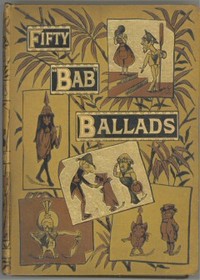Ballad: Bob Polter
byBob Polter stood as a familiar figure among the English working class—strong in stature, calloused from labor, and unrefined but honest in his dealings. His life moved in rhythm with pickaxes and pub nights, where smoke curled above battered tables and laughter echoed after long hours of toil. Though no stranger to ale and the occasional brawl, Bob wasn’t a man adrift in vice—his habits never fully consumed his character. He wasn’t perfect, but his choices, even flawed, were human and relatable. The absence of a family gave him a sort of rootless independence, one that made his companionship with other navvies his closest version of kinship. Days passed in hard work, evenings in simple pleasures, and weekends with enough revelry to forget sore backs and blistered hands. Still, something within Bob remained upright—an invisible line he hadn’t crossed. This reserved sense of control made him an everyman in a world increasingly blurred by excess.
That sense of moderation faced its first real test at the Nelson’s Head, a tavern like any other—noisy, hazy, full of warmth and mischief. While Bob nursed his usual pot of beer, an unexpected figure arrived. The man, not merely sober but saintly in appearance, disrupted the scene by dousing Bob’s drink with sermon-like resolve. To most, this act might’ve sparked laughter or outrage, but Bob was stunned. The man spoke of two spirits—abstinence and inebriety—locked in battle over men like him. This wasn’t mere symbolism; the warning seemed alive. Before Bob could dismiss the moment as theater, a ghastly form crept into view. Ragged, stumbling, and reeking of ruin, the figure looked like a vision torn from the darker corners of the human psyche. The air shifted, and Bob found himself caught in a moment of eerie clarity.
What made the apparition so powerful wasn’t its horror—it was its familiarity. This was no demon conjured from ancient myth, but a mirror of what Bob might become if he lost the reins. The bloodshot eyes, the trembling hands, the smell of rot and regret—it was a version of himself twisted by unchecked indulgence. It told him that drink was the working man’s friend, a balm for hardship, a just reward for toil. Its voice, cracked and wheedling, tried to seduce with sympathy. But Bob saw through it. He recognized not camaraderie but corrosion, not relief but decay. And in that instant, instinct overruled habit. With a gesture almost holy in its finality, Bob refused the ghost’s offer and turned away—not from a drink, but from a future he no longer wished to know.
The decision didn’t make Bob a saint. It didn’t erase the bruises of old Saturday night fights or scrub clean the soot on his boots. But it marked a boundary—one chosen with full clarity. He hadn’t become someone else; he had merely returned to himself. In a world where escapism can wear the mask of tradition, Bob’s choice stood out not as rebellion but as rare self-possession. The story doesn’t preach in absolutes; it reveals that moral battles aren’t won in grand declarations but in moments as quiet as a rejected pint. His rejection of the fiend was a declaration of worth, one made not with speeches but with an honest look at what he did and didn’t want to become. In that refusal, Bob reclaimed ownership of his life—flawed, gritty, but proudly his own.
What’s compelling about Bob’s story is its simplicity. There were no grand interventions or miraculous reforms. Instead, a single choice—clear-eyed and unsentimental—tilted the arc of a man’s life away from decline. The image of him standing in that pub, haunted not by guilt but by a vision of consequence, lingers for good reason. It tells us that every indulgence carries an echo, and that sometimes, the real strength lies in stepping back, not pushing forward. For readers, the tale invites reflection—not necessarily on alcohol alone, but on all forms of habit that quietly shape us. And in Bob Polter’s moment of reckoning, there’s a universal truth: you don’t need to be perfect to choose better. You just need to see clearly, even for a moment, and act on what you know deep down is right.
Today, Bob’s story feels even more relevant. The pressures of work, isolation, and finding comfort in routine tempt many into escapes that begin as harmless rituals. Whether it’s a drink, a distraction, or a destructive mindset, the pull is strong—but so is the power of a single decision. Bob didn’t promise lifelong abstinence. He just said no, then. That was enough to change his course. In the rhythm of ordinary life, it’s these quiet turns—subtle, personal, unspectacular—that steer us toward who we become. Through the haze of smoke and temptation, Bob Polter found clarity. And in doing so, he offered a message that endures far beyond the walls of the Nelson’s Head.

